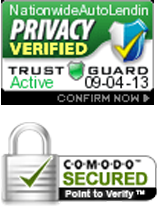FCC | CONSUMER AND GOVERNMENTAL AFFAIRS CONSUMER HELP CENTER – WWW.FCC.GOV/CONSUMERS 1 FCC | Consumer Connections Federal Communications Commission UNWANTED CALLS It’s a fact of modern life: A phone call you get at any time of day is likely to be a robocall, an unsolicited sales call from a live person or a call from an imposter who’s trying to scam you. Another fact of life Unwanted calls are consistently a top consumer complaint the FCC receives each year. Some robocalls you get are allowed under the law • Robocalls to your home phone from political candidates or from charities asking for donations are permitted. • Robocalls to your home phone that are strictly informational are permitted, too, but prerecorded calls to your home phone that are trying to sell you something are not permitted without your prior consent. So, a business calling about a cancelled flight, a prescription refill or an appointment isn’t allowed to use the call to try to sell you anything. • Recorded messages to your home phone from a business calling to collect a debt are also allowed, but recorded messages to sell you services to lower your debt are not, unless you’ve given prior consent. • Robocalls to your cell phone concerning bank fraud alerts, healthcare reminders, package deliveries and federal loans are permitted because they’re timesensitive. ABOUT THE ISSUE Technology spurring surge in robocalls Internet-based calling technology makes it easy and cheap to call from anywhere in the world, enabling speed and efficiency at a low cost. But scam operators use the technology for nefarious purposes, often hiding behind fake caller ID information. What kinds of robocalls are not allowed? • Most robocalls to your cell phone are illegal unless you’ve given the caller permission to call you, even if the caller isn’t trying to sell anything. • Most sales robocalls to your home phone are illegal unless you’ve given the caller permission to call you. • Although some calls from government agencies are legitimate, others may be from scammers and are illegal. If you think someone may be impersonating the IRS, other government agencies or Medicare, hang up and do not return the call unless you can independently verify the call was real. More about your rights • Telemarketers calling your home must provide their name, who they represent and contact info. • Telemarketing calls to your home are prohibited before 8 a.m. and after 9 p.m. • Telemarketers must comply immediately with any do not-call request you make. FCC | CONSUMER AND GOVERNMENTAL AFFAIRS CONSUMER HELP CENTER – WWW.FCC.GOV/CONSUMERS 2 FCC | Consumer Connections Federal Communications Commission WHAT THE FCC IS DOING Enforcing robocalls rules The FCC takes enforcement action against robocall operations when they violate our rules by calling you when they should have had your prior consent, but didn’t. Our actions against violators can include monetary fines. Sharing relevant data The FCC releases consumer complaint data daily, and companies then use the data to help run their robocall blocking services. In addition, we actively provide information and resources to help consumers take action to avoid unwanted calls, limit their risk, and protect their interests. Working with providers The FCC has urged the industry to lead the charge in limiting unwanted robocalls. As a result, both wireless and landline companies have been working to fast-track the development and application of effective tools and solutions against robocalls, such as better call blocking technology and improved caller ID verification standards. Working with consumers The FCC encourages you to report your complaints about unwanted calls to the agency, so that our investigators can continue their pursuit of the biggest offenders. Complaints may be filed at consumercomplaints.fcc.gov. WHAT YOU CAN DO Register your mobile and landline numbers The federal government’s Do Not Call Registry can help you minimize sales calls from legitimate companies. To register your number or get information about the Registry, visit donotcall.gov or call 1-888-382-1222 from the number you want to register. You will get fewer telemarketing calls within 31 days. Registration is free and your number will stay on the Registry until it is disconnected or reassigned, or you choose to remove it. Don’t answer a call if you don’t recognize the caller ID Remember that scammers spoof caller ID information to make it look like they’re calling from a different location or number, to avoid call blocking and to make you think the call is coming from a number you recognize. • Answering a call from someone who may be acting illegally could verify that you have an active line, which means more calls to your number. • Don’t call back an unfamiliar number to find out who was calling, either – it could lead to more scams. • If asked to hit a button to stop getting calls, don’t do it – just hang up. Never reveal personal or financial info If you receive a suspected fraudulent call from someone claiming to be from the IRS, your bank or credit card company, or even a utility or your local police department, hang up the phone. Independently verify any numbers you’re asked to call by checking your billing statement or a legitimate website, or contact the organization through an official number, web form or email address. Never reveal any personal or financial information unless you have verified the caller’s identification. Report unwanted callers File a complaint with the FCC at consumercomplaints.fcc.gov when you receive an unwanted call. Investigators look for patterns in complaints to determine where to take action. You may also report the incident to the FTC at ftccomplaintassistant.gov or to your local police. Look into services that can help to block unwanted calls These may be features on your mobile phone, apps, services from your provider or devices for your landline. Visit fcc.gov/unwanted-calls for resources and information on robocall blocking tools. Last reviewed 2/2/2017
By reading such or entering in to such application or transfer of information sets principle that no legal action can be brought about to The Leadflow LLC or any of its partners. This is binding upon filling out of the application form and checking the box.
By checking the box you have consented to all of the FTC’s compliance regulations. You are authorizing The LeadFlow LLC to contact you via pre-recorded, voice or data phone calls & text / mms messages.





